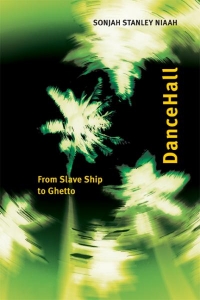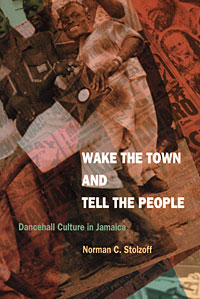On this page:
::: Dancehall :::
::: Soca :::
::: Kuduro/Kuduru :::
::: Dancehall :::
Cooper, Carolyn “Sound Clash: Jamaican Dancehall Culture at Large” 2006
Laemmli, Kiley E. “Culture as Commodity: Dancehall Queens and the Sale of Female Empowerment”
Manuel, Peter and Wayne Marshall. “The Riddim Method : Aesthetics, Practice, and Ownership in Jamaican Dancehall.” Popular Music 25, no. 3 (2006): 447-470.
Marshall, Wayne “Bling-bling for Rastafari?” (dissertation excerpt)
Partridge, Christopher. 2010. Dub in Babylon. London: Equinox.
Stanley Niaah, Sonjah. “DanceHall: From Slave Ship to Ghetto”. University of Ottawa Press.
Veal, Michael. “Dub: Soundscapes and Shattered Songs in Jamaican Reggae”. Middletown, CT: Wesleyan University Press.
::: Soca :::
::: Kuduro/Kuduru :::
Szczepanek, Jacek «Producing Music Is a Privilege» Norient 3 March 2014
Tomás, António “Harnessing the energia of kuduro and its infrastructure of circulation”
Alisch & Siegert “Angolanidade revisited – Kuduro” Norient 6 June 2011
Seddon, Portia “MP3 Blogging and the Urban Soundscape” Norient 23 May 2012
Moehn, F. “Kuduro meets Tecno-Brega” Norient 9 July 2013
Rocha, C. “Global Ghettotech” Norient 13 June 2009
“I Love Kuduro”
“Kuduro Cultura” 2014


